VinØ Program - 2024 Annual Report
The VinØ Program (pronounced as 'vin zero)' is Tasmania's best management practice system, designed and tailored to assist the island's producers to monitor, improve, benchmark and communicate their viticultural and winery practices.
It is a significant and important initiative, providing a user-friendly management and reporting tool. Program members each receive a detailed annual benchmarking report, which identifies areas of their business where they are performing well against best practices and areas requiring improvement. It also allows them to benchmark their performance against fellow program participants.
The VinØ Program aligns with the Australian Wine Industry Standard of Sustainable Practice - Viticulture and Winery and recognises formal accreditation programs (eg Sustainable Winegrowing Australia, Australian Certified Organics or Demeter Biodynamic). Tasmanian wine businesses that achieve certification under these programs can opt out of reporting their data through VinØ as they are automatically recognised as having achieved best practices.
Below is the annual VinØ Program report for the 2023-24 season.
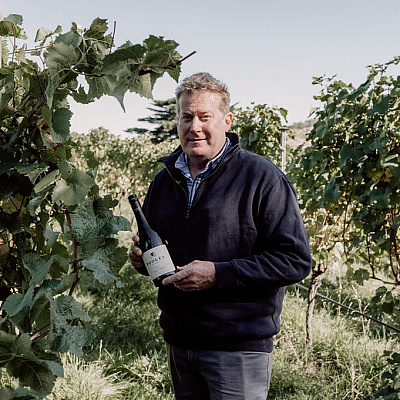
2024 VinØ Program Champion
Pooley Wines - Steve Ferguson
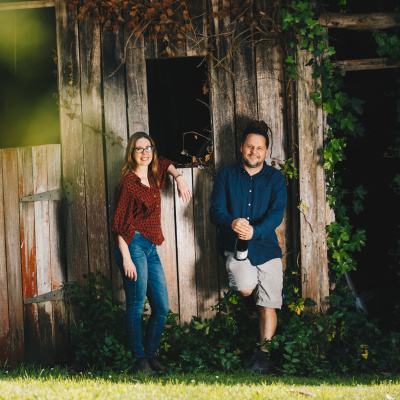
2024 VinØ Program Most Improved Producer
Delamere Vineyards - Fran Austin & Shane Holloway
Previous Winners
| Champion | Most Improved | |
| 2023 | Stargazer | Westella Vineyard |
| 2022 | Pooley Wines | Barringwood |
| 2021 | Waterton Hall | Southwood Wines |
| 2020 | Pooley Wines | Cambridge Valley Vineyard |
The data...
Just under half of Tasmania's total vineyard area was managed under the VinØ Program in 2023/24, with 33 members particpating across vineyards and wineries
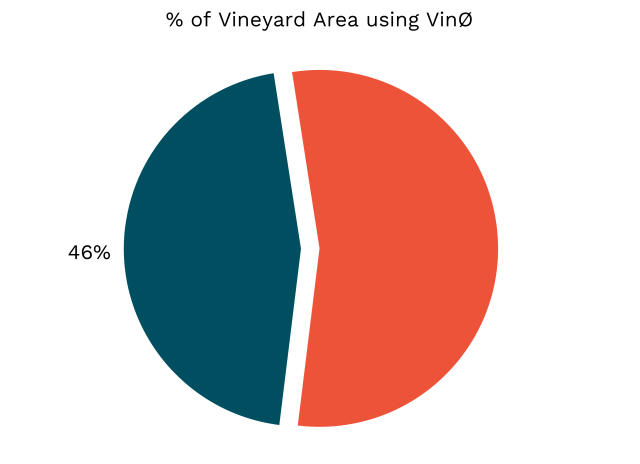
New wine producer members continue to join the VinØ Program
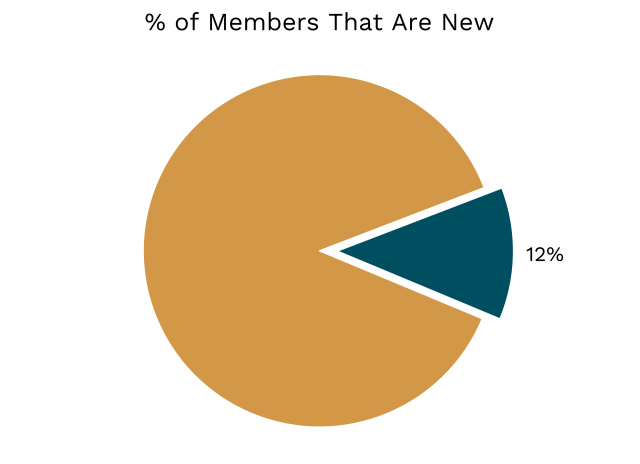
Program Member Results
Each question in the workbook is scored from "4 - excellent / best practice" to "0 - needs improvement". This enables each member to receive an overall score for their practices. This graph lists those overall scores. There was an improvement in the overall program results in 2023/24, reflecting continued improvement of member practices.
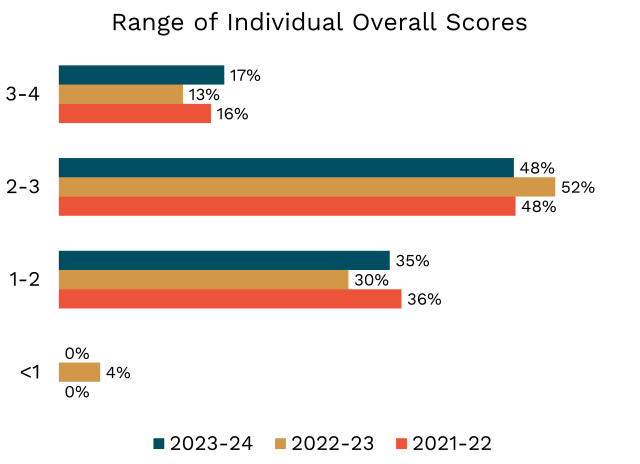
This season, the combined average score across all members resulted was 2.47 out of a perfect mark of 4.
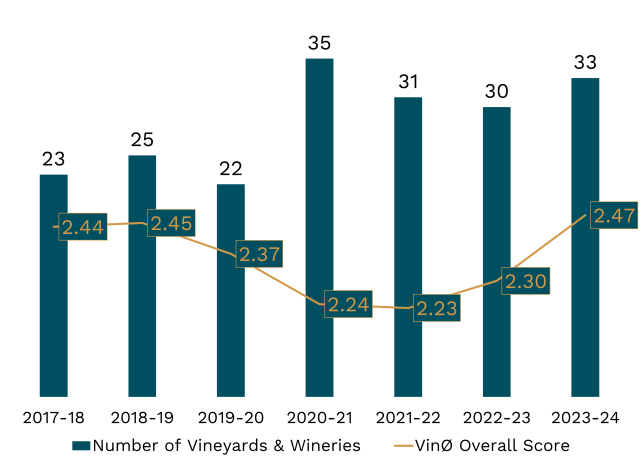
VinØ is a self-asessed and practical workbook used to improve sustainable practices. Some members choose to go a step further and participate in external, formal certification programs.
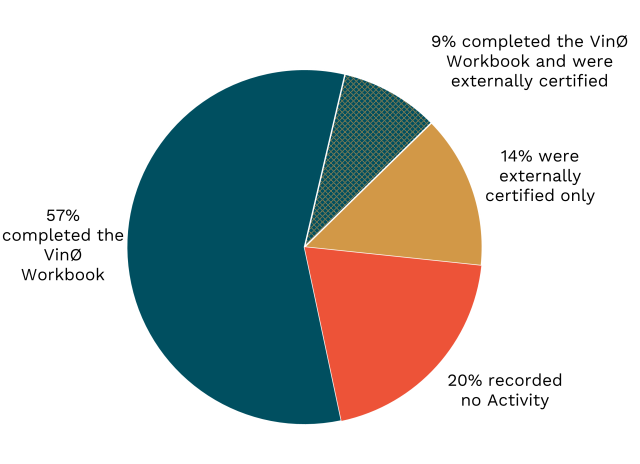

Module Results
The program is divided into nine modules:
1. Soil Health, Nutrition and Fertiliser Management
2. Pest and Disease Management
3. Biodiversity Management
4. Water Management
5. Biosecurity
6. Winery management
7. Waste Management
8. People and Community (Internal, Community, and Winery Relations)
9. Carbon Emissions
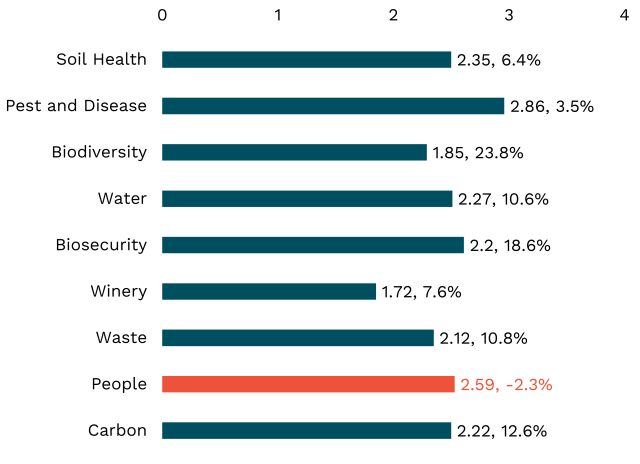

Areas in which Tasmanian wine producers are performing well:
| Soil Health - Weed Control Strategy |
| Pest and Disease - Pest and Disease Management Plan; Grapevine Agrochemical Application Records; Agrochemical Transport; Planting Material; Grapevine Trunk Disease Management |
| Water - Irrigation Scheduling |
| Biosecurity - Links with Other Wine Regions; Biosecurity Vineyard Inspections |
| People - Remuneration |
Areas showing an opportunity for improvement:
| Soil Health - Organic Matter |
| Biodiversity - Biodiversity Action Plan; Browsing Wildlife |
| Water - Irrigation Records |
| Winery - Environmental Action Planning; Emergency Spill Response; Winery Water Management Program; Winery Wastewater Management; Biodiversity Plan - Winery Site; Air; Energy |
| Waste - Waste Management Training |
| People - Work Health and Safety |
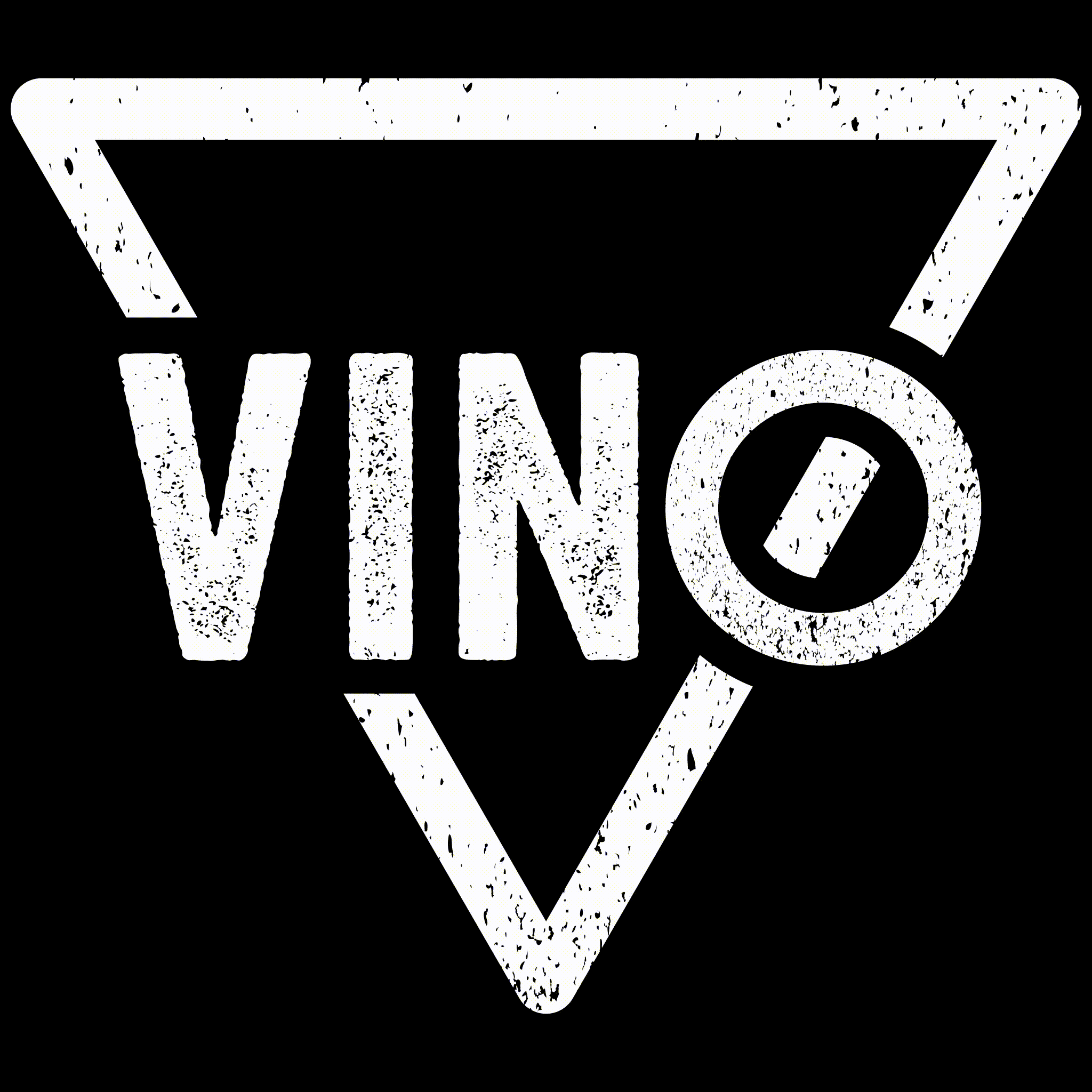
2023-24 Participating Members
| Barringwood | ||
| Bellebonne | ||
| Brown Family Wine Group | Logo Standard Achieved | External Certification |
| Cape Bernier | ||
| Clover Hill | ||
| Dalness Farming | ||
| Delamere Vineyard | Logo Standard Achieved | |
| Gala Estates | ||
| Handpicked Wines | ||
| Hill Smith Family Vineyards | Logo Standard Achieved | External Certification |
| Holm Oak Vineyards | ||
| Invercarron Wines | ||
| Josef Chromy | Logo Standard Achieved | External Certification |
| Marion's Vineyard | Logo Standard Achieved | External Certification |
| Meadowbank | ||
| Moores Hill | ||
| Moorilla Estate | ||
| Nocton | ||
| Pooley Wines | Logo Standard Achieved | External Certification |
| Pressing Matters | ||
| Puddleduck Vineyard | ||
| Quiet Mutiny | ||
| Sisu Wines | Logo Standard Achieved | |
| Small Wonder | Logo Standard Achieved | External Certification |
| Southwood Wines | ||
| Stargazer Wines | ||
| Stoney Rise | ||
| Swinging Gate Wines | ||
| Tasmanian Organic Wines | Logo Standard Achieved | External Certification |
| Tertini Wines | ||
| Waterton Hall | ||
| Webster | ||
| Westella Vineyard | ||
2023-24 Carbon Action Program
17 businesses have signed up to measure, monitor and implement plans to reduce their carbon emissions. 59% of carbon emissions are produced by the supply chain (Scope 3), with 18% being produced directly through our businesses (Scope 1). Some of the carbon emission reduction activities that have been employed include the adoption of electric or hybrid vehicles, co-inoculation of malolactic fermentation bacteria, and the use of flotation instead of cold settling as well as planting trees. Tasmania has the least carbon-intensive electricity grid in Australia and members are supplementing this with the installation of solar panels.
On behalf of the Tasmanian wine sector,
Wine Tasmania thanks the Tasmanian Government for its support of this important initiative.
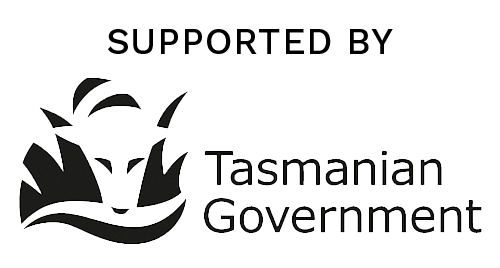
Wine Tasmania acknowledges the Aboriginal people as the traditional owners of lutruwita (Tasmania), our island home. We pay our respects to the Tasmanian Aboriginal community, their Elders past and present and recognise their unique cultural and spiritual relationships to the land, water and community.

